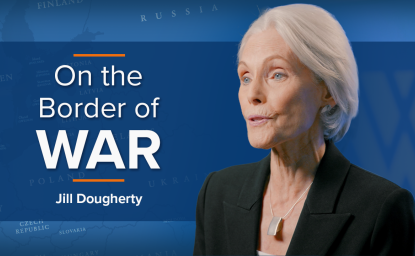Speaking on Libya: More Questions Than Answers
President Obama faces serious challenges with speech tonight about Libya. Public Policy Scholar Aaron David Miller identifies two painful realities that will affect the president's address.
President Obama faces serious challenges with speech tonight about Libya. Public Policy Scholar Aaron David Miller identifies two painful realities that will affect the president's address.
George Shultz used to say that when we didn't have an effective policy, the pressure grows to give a speech. The problem with Obama's speech tonight—any presidential speech—is that it should clarify and explain, not obfuscate. And if it cannot do that, no matter how compelling and inspiring the rhetoric, it cannot succeed. This is all the more painfully obvious when the president is speaking about a situation in which America is at war.
The president's challenge tonight is compounded by two painful realities:
First, he does not have the answers (or isn't prepared to give them) to address the uncertainties that abound. What's the objective of the mission, protect civilians or get rid of Moammar Gadhafi? The latter is critical to the former. What or who comes after Gadhafi and to what extent are we responsible for owning post-Gadhafi Libya? And is the response on Libya a prelude to an Obama doctrine regarding American interventions yet to come, in Syria, Iran, Yemen, Bahrain? The president will try to assure on all of these matters, but the fact is he just doesn't know.
Second, there is a context here. The president is speaking against the backdrop of two ongoing wars in Afghanistan and Iraq—the longest wars in American history where our objectives (always murky) now exceed our capacity to achieve them. At best, they will have uncertain endings driven primarily not by how we can win decisively, but by when can we leave. This president didn't start either war; but he doubled down on one—Afghanistan—which he now owns. Libya isn't like either one; but the connections about costs to returns, clarity of objectives and the "getting in is easier than getting out" problem hover always.
Still, the president will argue that the military piece is going well, that Gadhafi is pressed and isolated more than ever, and that America is part of a broader coalition sharing the responsibility and cost. And that in Libya we have been able to square our values (avoiding a massacre) with our interests (empowering the opposition to take down a cruel dictator who threatens regional stability.) Most Americans may well give him the benefit of the doubt, but whether in the end the president is the hero or the goat will turn—as most matters in life do—on success or failure. Indeed, Libya isn't about liberal or conservative, Republican or Democrat, or left or right, it's about smart or dumb. And only time will tell which evaluation prevails.


